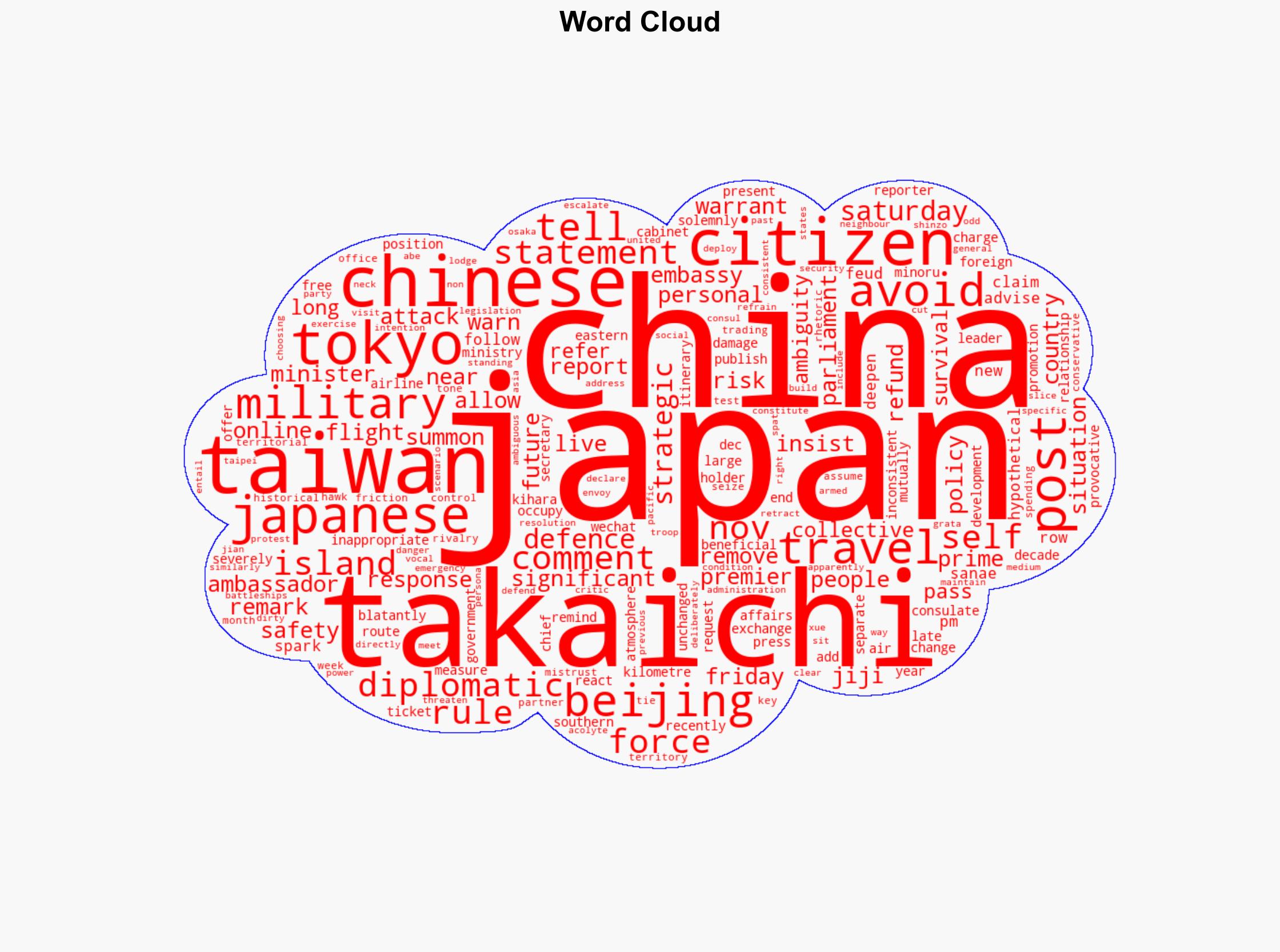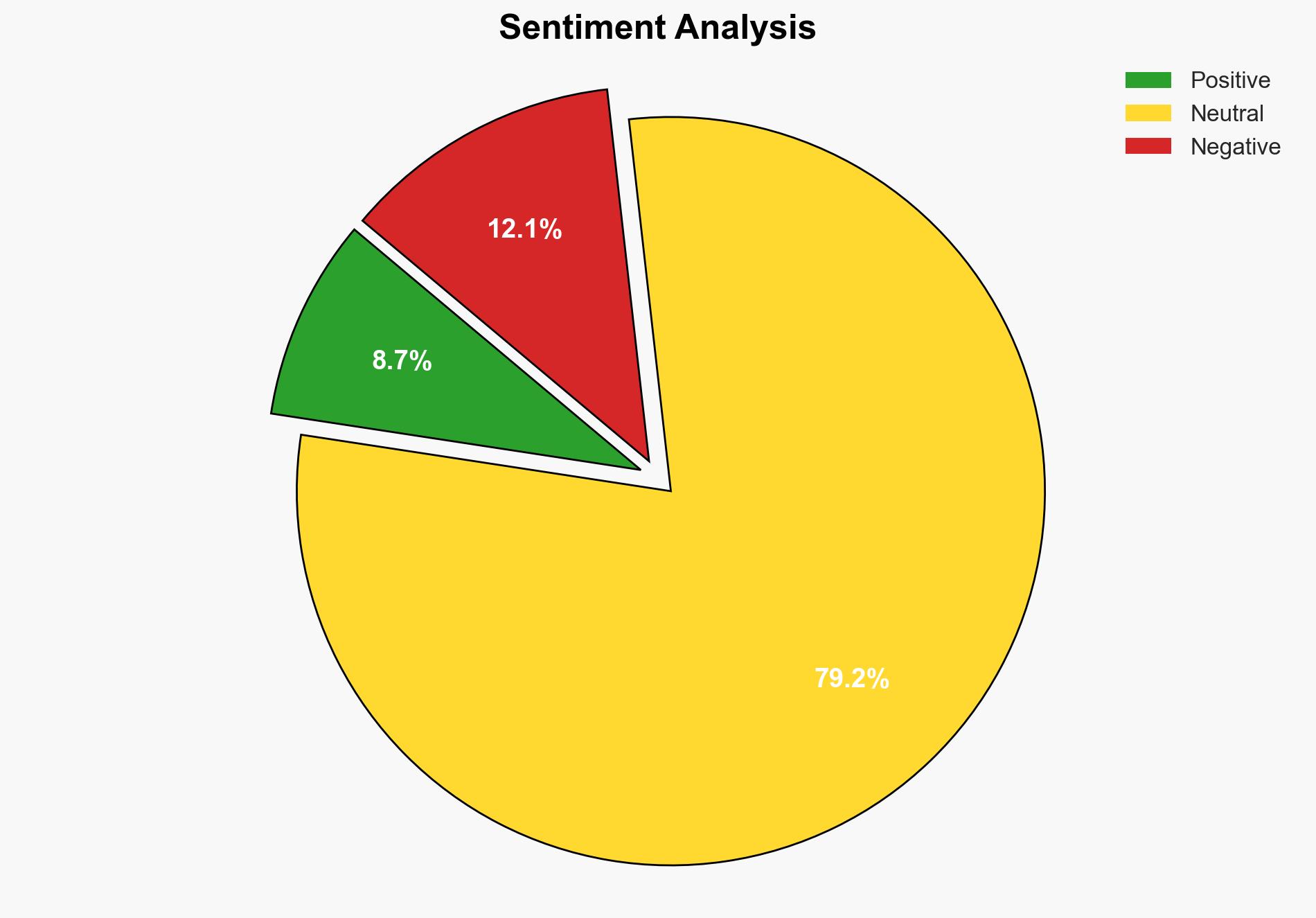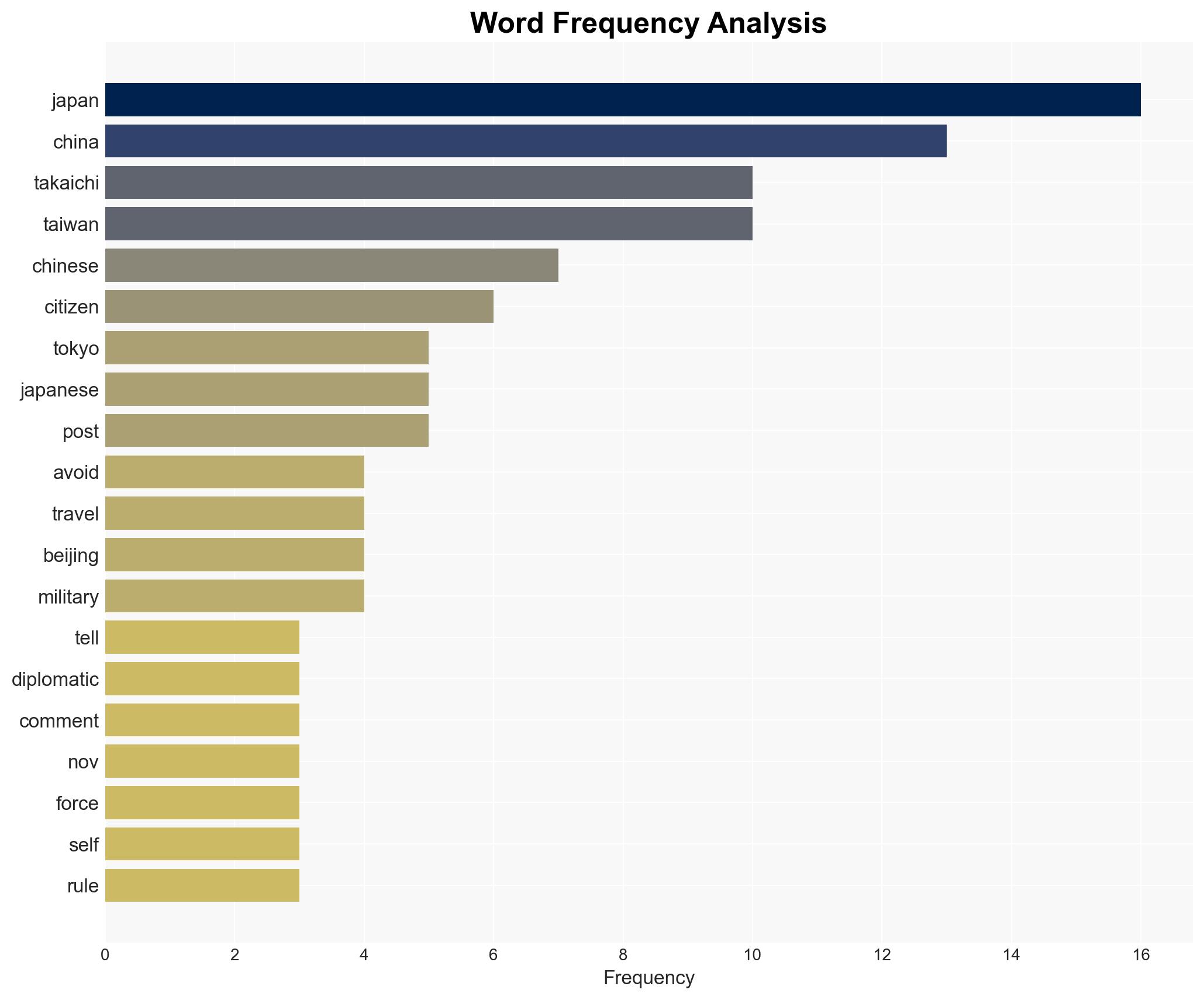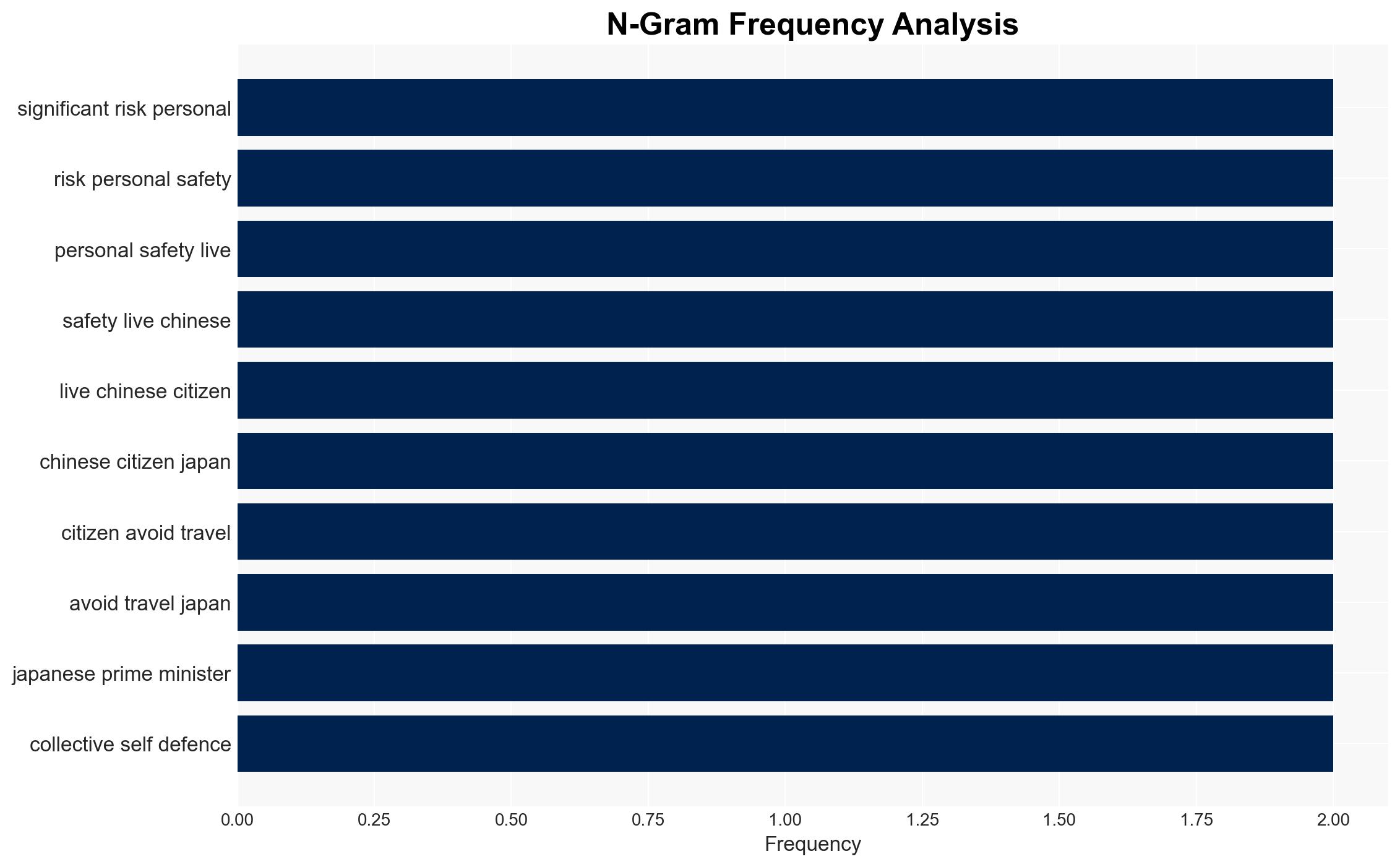China tells citizens to avoid Japan travel after PM Takaichi’s Taiwan remarks – CNA
Published on: 2025-11-15
AI-powered OSINT brief from verified open sources. Automated NLP signal extraction with human verification. See our Methodology and Why WorldWideWatchers.
Intelligence Report: China tells citizens to avoid Japan travel after PM Takaichi’s Taiwan remarks – CNA
1. BLUF (Bottom Line Up Front)
There is a moderate confidence level that China’s advisory for its citizens to avoid Japan is primarily a strategic maneuver to exert diplomatic pressure on Japan following PM Takaichi’s remarks on Taiwan. The most supported hypothesis is that China aims to leverage economic and social influence to deter Japan from further provocative statements or actions regarding Taiwan. Recommended action includes diplomatic engagement to de-escalate tensions and reinforce communication channels between Japan and China.
2. Competing Hypotheses
Hypothesis 1: China’s advisory is a tactical response to PM Takaichi’s comments, intending to apply diplomatic and economic pressure on Japan to retract or moderate its stance on Taiwan.
Hypothesis 2: The advisory is primarily a domestic narrative tool, aimed at reinforcing China’s sovereignty claims over Taiwan and rallying nationalistic sentiment internally, with less focus on actual diplomatic impact on Japan.
Hypothesis 1 is more likely due to the immediate diplomatic actions taken by both countries, including summoning ambassadors and public statements, indicating a direct response to the remarks rather than a solely internal narrative.
3. Key Assumptions and Red Flags
Assumptions include the belief that China values economic ties with Japan and would avoid long-term damage to this relationship. A red flag is the potential for misinterpretation or escalation due to nationalistic rhetoric on both sides. Deception indicators could include exaggerated claims of risk to Chinese citizens in Japan, used to justify the advisory.
4. Implications and Strategic Risks
The primary risk is further diplomatic deterioration, potentially affecting trade and regional security. Escalation could lead to increased military posturing or cyber operations targeting critical infrastructure. Economically, prolonged tensions may disrupt bilateral trade, impacting both economies.
5. Recommendations and Outlook
- Engage in diplomatic dialogue to clarify intentions and reduce tensions.
- Monitor media narratives in both countries for shifts in tone or escalation indicators.
- Best-case scenario: Diplomatic resolution with reaffirmed commitments to regional stability.
- Worst-case scenario: Escalation to military posturing or economic sanctions.
- Most-likely scenario: Continued diplomatic exchanges with periodic tensions, but no significant escalation.
6. Key Individuals and Entities
PM Sanae Takaichi, Minoru Kihara, Xue Jian, Chinese Ministry of Foreign Affairs, Japanese Government.
7. Thematic Tags
Regional Focus, Regional Focus: East Asia, China-Japan Relations, Taiwan Issue, Diplomatic Tensions
Structured Analytic Techniques Applied
- Causal Layered Analysis (CLA): Analyze events across surface happenings, systems, worldviews, and myths.
- Cross-Impact Simulation: Model ripple effects across neighboring states, conflicts, or economic dependencies.
- Scenario Generation: Explore divergent futures under varying assumptions to identify plausible paths.
- Bayesian Scenario Modeling: Forecast futures under uncertainty via probabilistic logic.
Explore more:
Regional Focus Briefs ·
Daily Summary ·
Support us
·





